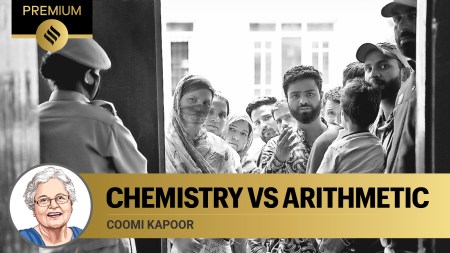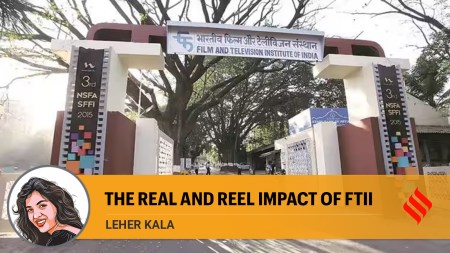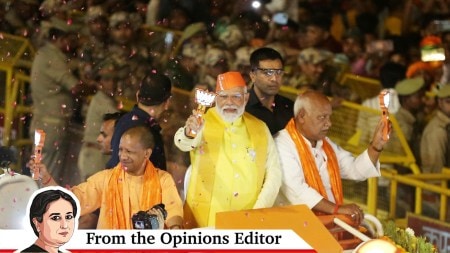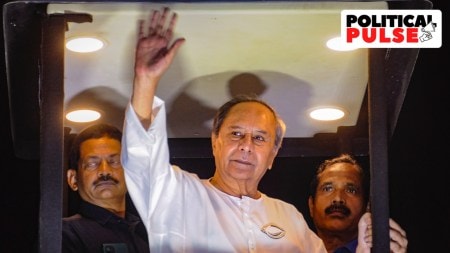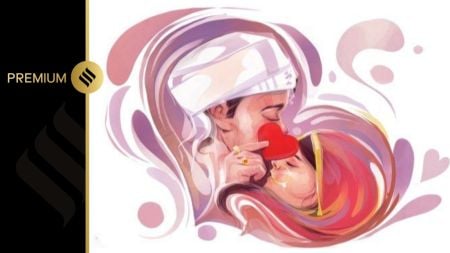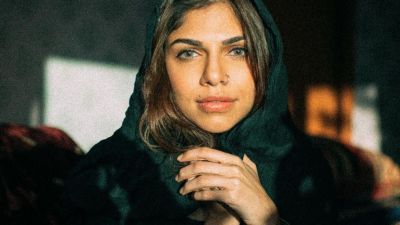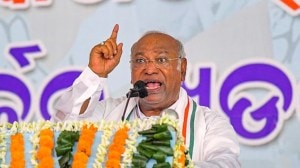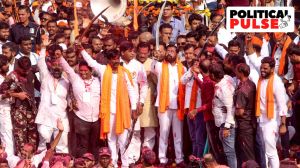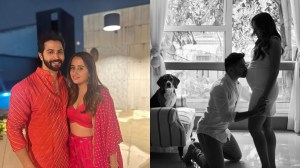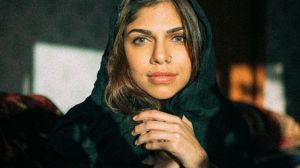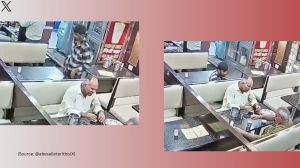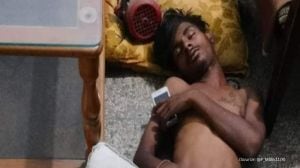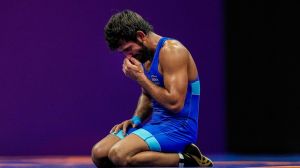- India
- International
Anvita Dutt on why Bulbbul is a feminist “fairy tale”
The lyricist and screenwriter talks about the making of her directorial debut and why the “female gaze” isn’t restricted to women
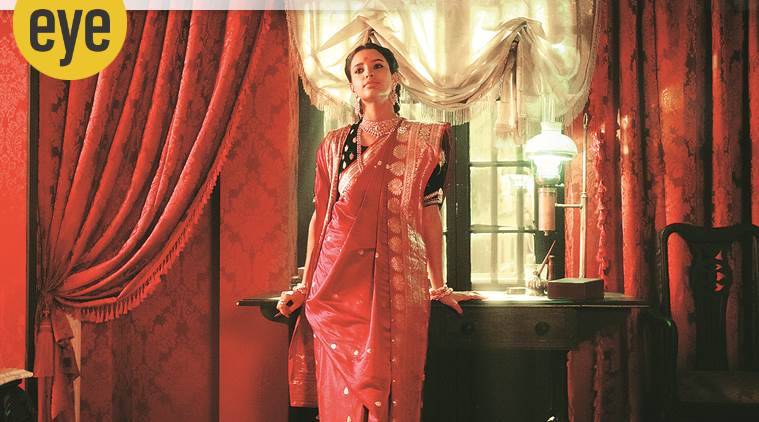 A still from the film (Photo: Netflix India)
A still from the film (Photo: Netflix India)
Mere pair thode ulte hain (I’ve inverted feet),” says Anvita Dutt, the writer-director of the film Bulbbul, that released on Netflix on June 24. Dutt’s allusion to the popular belief that chudails (witches) can be identified by their inverted feet is an explanation for her compulsive urge to give every story she writes a dark twist. “All the stories that I write, barring the commissioned ones, inadvertently introduce some supernatural or fantasy elements,” says Dutt, whose directorial debut is a dark fable set in 19th-century Bengal.
Bulbbul critiques the horrors of patriarchy that exist beneath a veneer of aristocracy. Bulbbul, a child bride, is married off to an older landlord. When the story takes a 20-year leap to the year 1901, Bulbbul is calling the shots in a gorgeous haveli. Casting a shadow over this charming world is a series of killings attributed to a chudail. Satya Thakur, Bulbbul’s brother-in-law and childhood playmate, doggedly investigates these deaths.
Dutt, 47, wrote Bulbbul nearly a decade ago, in between her commissioned film assignments. The moment she finished writing it, Dutt experienced a certain amount of “possessive love and greed” for it. She decided not to pitch it to any director. Instead, she wanted to direct the movie herself. “Strangely, on the first day of the shoot, I almost heard an audible snap of a jigsaw piece falling into place. I felt as if I had come home. Now, I would pick direction over other things even though I will always say that I am a writer first,” says Dutt, an advertising professional who made a career switch 13 years ago to write lyrics and screenplays in Hindi films. After starting her film career as the dialogue and lyrics writer of Neal ‘n’ Nikki (2005), she worked on many movies such as Heyy Babyy (2007), Bachna Ae Haseeno (2008), Patiala House (2011), Student of the Year (2012) and Queen (2014).
Dutt says that she decided on a period drama because she is drawn to the neoclassical period of Bengal. The writer-director selected Bawali Rajbari, about two hours from Kolkata, out of the many beautiful mansions she visited during the recce because it appealed to her as a “beautiful prison”. “What I really liked about this house was that it is like a box with high walls. The only exit from that house is a small door,” says Dutt, who has also worked on Phillauri (2017) and Pari (2018).
Rabindranath Tagore, too, influenced the period setting of the film. “Tagore’s woman characters are written so sensitively — somewhere, that too inspired me to tell the story in a period when his stories were set,” says Dutt, who has named one the key characters Binodini (Paoli Dam) after a Tagore character in the novel Chokher Bali (1903). Bulbbul has pronounced shades of Nastanirh (Tagore’s 1901 novella on which filmmaker Satyajit Ray’s 1964 film Charulata is based), especially the way it looks at the relationship that Bulbbul shares with Satya and their joint literary pursuit. Tripti Dimri and Avinash Tiwary — the lead actors of Laila Majnu (2018), who essay the characters of the adult Bulbbul and Satya respectively — share a beautiful chemistry.

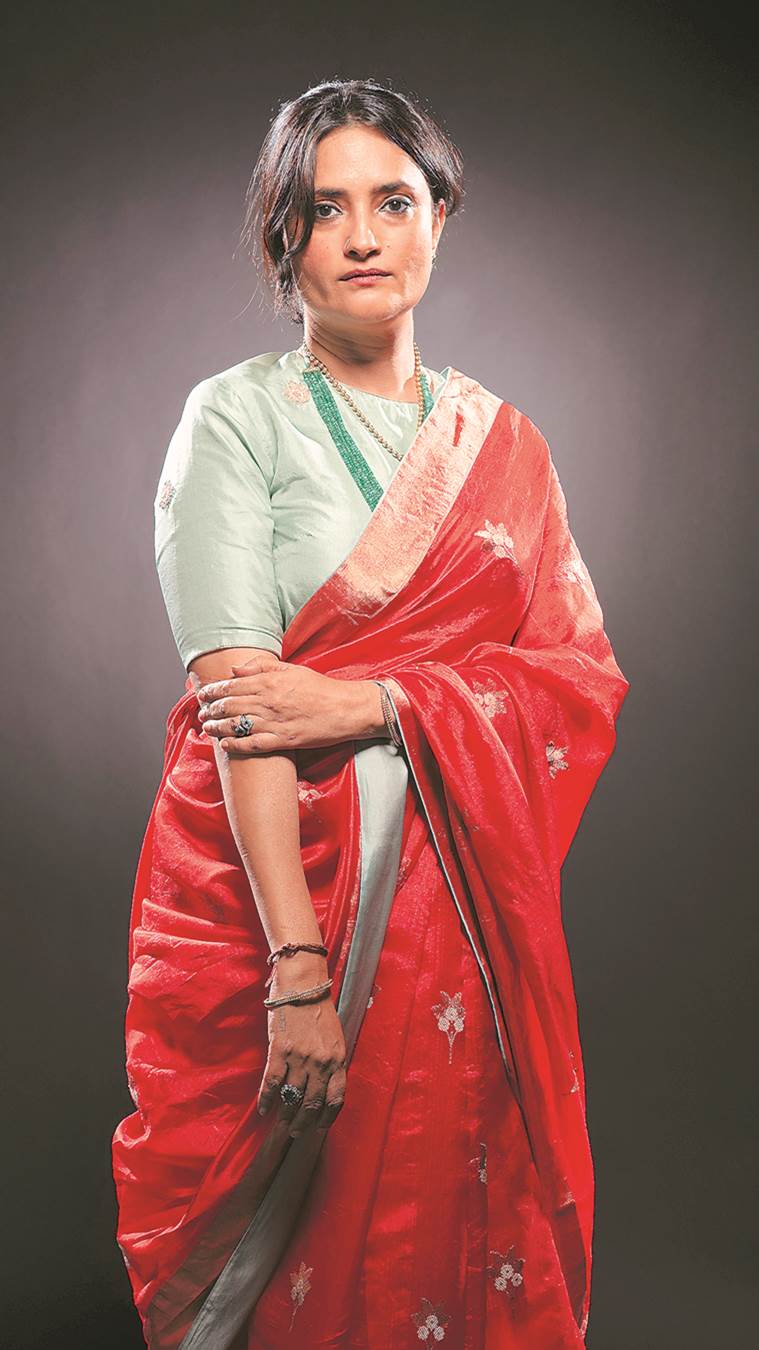 In an ideal world, Dutt says, people would stop calling her a ‘female’ director. ‘The term female is attached because there are so few of them,’ she says.
In an ideal world, Dutt says, people would stop calling her a ‘female’ director. ‘The term female is attached because there are so few of them,’ she says.
The film’s action frequently moves to a misty forest where men, under the red moonlight, are on a witch-hunt. Yet, Dutt refrains from calling Bulbbul “a horror movie”. “It’s more of a fairy tale. It has a lot of mood and intrigue,” she says. Having read fantasies and science fiction since childhood, that mode of story-telling has always had a peculiar appeal for her. “On my bookshelf, you will find books by Neil Gaiman, Terry Pratchett and Ursula Le Guin. The first book that I ever read when I was five was a Russian fairy tale. They were not the sanitised fairy tales that children read today. They were dark. I remember reading about Baba Yaga, the Russian chudail. There was beauty, emotion and spookiness in it,” recalls Dutt, whose childhood was spent in cantonments of Assam, Chennai, Jodhpur and Haryana, thanks to her father’s job in the Indian Air Force.
Bulbbul is a chilling reflection of patriarchal society in the way that Jordan Peele’s Get Out (2017) is about racial alienation. Making a statement was not on Dutt’s agenda when she started writing. “When you sit down to write, the first thing that comes to your mind is the story. You are spinning a yarn and saying, ‘Once upon a time…’. You just want to pull in the audience. But the things that affect you — it could be misogyny or the fact that women take so much time to come into their own because of the way they are brought up — might reflect in the story,” says the writer, who has “Once upon a time”, “aparajita” and “katha kavita” tattooed on her arms, along with a symbol of “devi” (goddess).
In an ideal world, Dutt says, people would stop calling her a “female director”. “No one says a male lyricist. The term ‘female’ gets attached because there are so few that it is an anomaly,” she says. While “female gaze” is essential to storytelling, the onus is not on women alone, she says. “There are men who have told sensitive stories and have the female gaze. Tagore was one of them. If you hear the lyrics of Gulzar saab, they are so delicate. Bimal Roy’s movies had outstanding female characters.”
With five feature film scripts and three web-series outlines in her bank, she has no plans of slowing down as a director. “Fortunately, Clean Slate Filmz (formed by actor Anushka Sharma and her brother Karnesh Ssharma) is interested in making all of them. All I can share with you is that they are stories of interesting girls and they all have an element of the supernatural,” says Dutt. To her surprise, Indian filmmakers haven’t explored dark and supernatural tales much even though the subcontinent has a rich reservoir of them. “That’s fine, though. I’m going to tell these stories,” she says, with a smile.
Jun 03: Latest News
- 01
- 02
- 03
- 04
- 05



